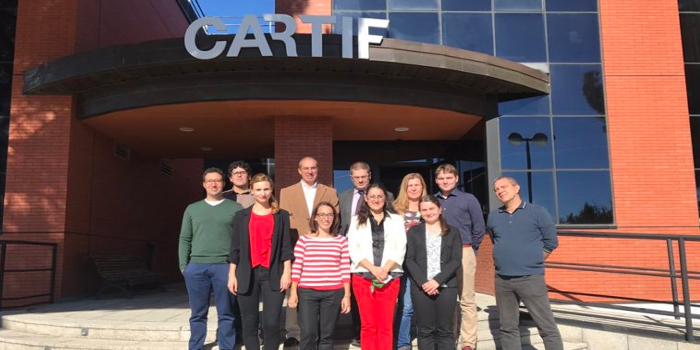With the presence of all partners, the ALGAECAN project, funded by the EC through the LIFE program, has started today at the CARTIF facilities in Valladolid.
The objective of the ALGAECAN project is to develop a demonstration plant for a model of sustainable treatment of wastewater from the fruit and vegetable processing industry, through the profitable cultivation of heterotrophic microalgae. Heterotrophic microalgae are those that require organic compounds for their nutrition and that grow in the absence of light. They have great potential to remove organic carbon and various types of nitrogen and phosphorous compounds from wastewater, which use it as a source of carbon and energy without the need for sunlight. Later these microalgae will serve as raw material for the production of biofertilizers, animal feed, etc.
To do this, the project consortium will design and develop a prototype of a plant powered by renewable energies, specifically with solar energy and biomass support, with the aim of minimizing the carbon footprint and operating costs.
This plant will be installed in two demonstrators over a period of 6 months, one of them at the Huercasa company facilities in Segovia (Spain), and the second at the VIPÎ company facilities in Slovenia.
The technology developed in this project will allow, on the one hand, to reduce the cost of fruit and vegetable processing and, on the other, to eliminate the environmental impact associated with the generation of waste in the form of sludge, as happens with traditional aerobic treatment systems and your usual landfill deposit. Furthermore, this development will allow obtaining high-quality effluents that can be reused for irrigation or cleaning, or discharged into channels.
The ultimate goal of the project is to be able to replicate its results elsewhere.
The project consortium is made up of the CARTIF Technology Center (as coordinator), HUERCASA (Spain), the University of Athens (Greece), the AlgEn Technology Center (Slovenia) and VIPÎ (Slovenia).

